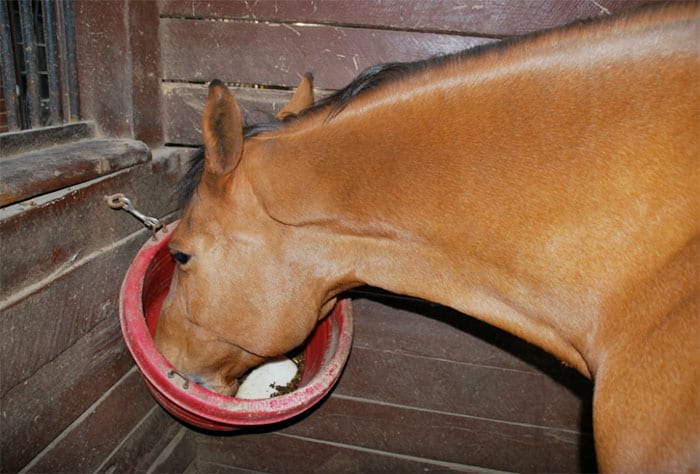
Antibiotic-Associated Diarrhea In Horses
Researchers found horses treated with antibiotics have significantly less diversity (fewer bacterial species) in their GI microbiomes than healthy horses.

Researchers found horses treated with antibiotics have significantly less diversity (fewer bacterial species) in their GI microbiomes than healthy horses.

Owning a horse over his lifetime can be rewarding, but you need to be prepared for specific costs related to his care. Learn about senior horse research studies and what veterinarians say you should watch for as your horse ages.

Serious complications are uncommon in equine pregnancies, but when they occur the consequences can be devastating. Here are 6 high-risk scenarios to watch for.

An equine gastroenterology expert offers advice to veterinarians managing colic on farms. He also talks about indications it’s time to move the horse to a hospital.

Scottish researchers found a half barley straw and half hay ration helped ponies lose weight.

Chokes are common equine emergencies with potentially serious consequences. Here’s what you need to know.

Learn about the clinical signs of colic and what to do if your horse experiences a bout.

Researchers say progressive changes in diets lead to healthier microbiomes and fewer digestive issues, such as diarrhea and colic.

Showing, training, traveling, or even lifestyle changes can put your horse under stress that risks his health. The right nutritional choices can support his immune system, GI tract, and overall well-being. Learn how.

Blending at least 15% chaff with a horse’s feed can increase consumption times and reduce health risks such as colic and choke.

Here’s a list of questions all horse owners should answer before their horses colic.

British researchers reviewed more than 150 equine microbiome studies. From colic to laminitis to pregnancy, here’s what they found.

Gastric disease develops most commonly in the squamous region, when stomach acid splashes onto that vulnerable area of tissue. Why it develops in the glandular region—and how to prevent and treat it—is less clear. Five researchers discuss what we do know about equine glandular gastric disease.

Reduced performance, including a shorter stride length, is likely a consequence of pain caused by equine gastric ulcers.

Non-steroidal anti-inflammatory drugs serve an important role in managing equine pain and inflammation, but sometimes they can do more harm than good.

Learn about the risk factors associated with horses getting gastric ulcers, as well as diagnosis and basic management and treatment.
Stay on top of the most recent Horse Health news with
"*" indicates required fields